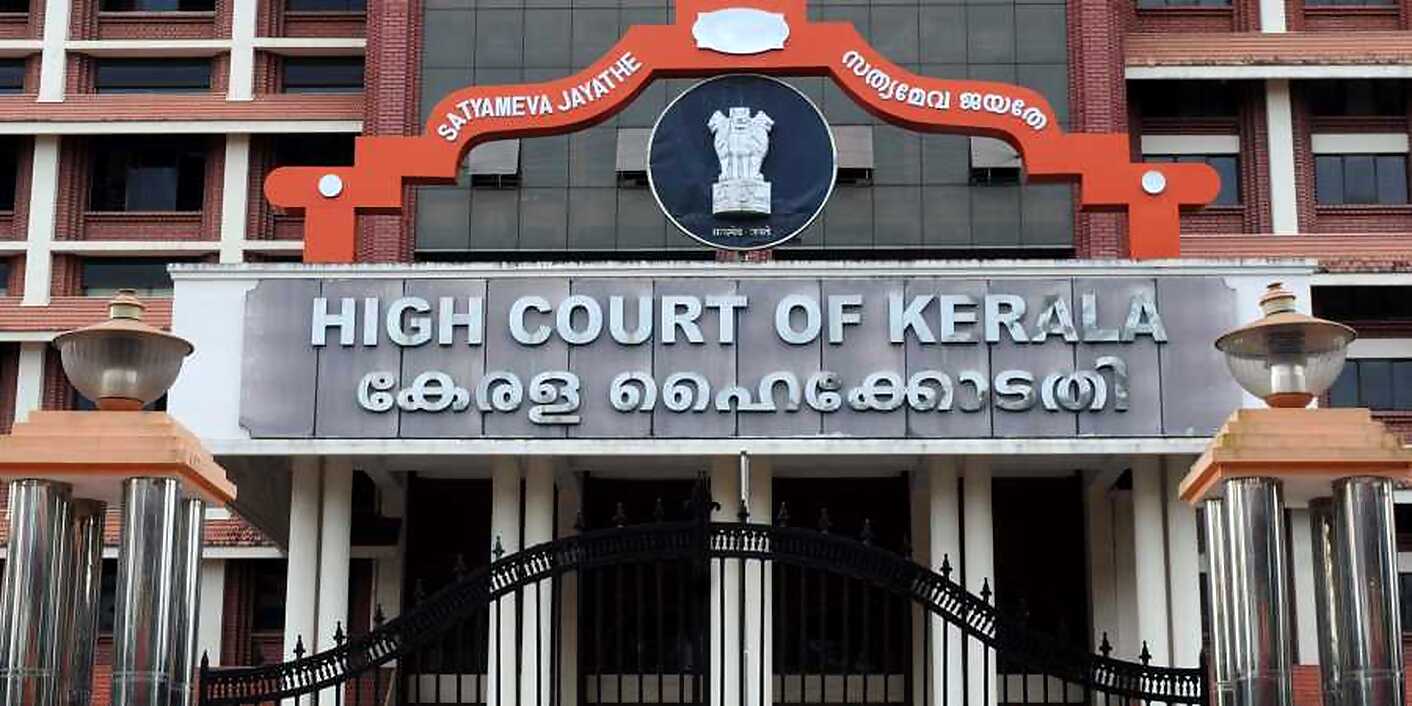Convict in same offence is not ‘approver’ & though being accomplice,his trial & conviction,even if in separate proceedings, renders him incompetent witness:Kerala HC

Read judgment: ABDUL RAZAK @ ABU AHMED VS. UNION OF INDIA AND ORS.
Pankaj Bajpai
Kochi, September 2, 2021: The Kerala High Court has ruled that there is a clear prohibition against using the evidence of a person accused of an offence against his co-accused, when he loses his status as a person who availed pardon, when there is breach of the terms of pardon.
Stating that the salutary principle u/s 306 of the CrPC could have been availed of by the prosecution before-hand, a Division Bench of Justice K. Vinod Chandran and Justice Ziyad Rahman observed that once co-accused is convicted, he cannot be called to the stand on behalf of the prosecution, to speak for them and against the other accused.
A convict in the same offence is not an approver and though an accomplice, his trial and conviction, even if in separate proceedings, renders him an incompetent witness, added the Bench.
The observation came pursuant to a petition filed by the second accused pending before the Special Court, wherein he had challenged an order, passed by the Special Court allowing an application submitted by the National Investigation Agency (NIA) permitting examination of one Shajahan V.K as an additional witness in the said Sessions Case.
The background of the case was that the petitioner along with a co-accused and Shajahan, (the proposed additional witness), in furtherance of their common intention to wage war against Syria, and to physically join the proscribed terrorist organisation ISIS, attempted to reach Syria together.
When they reached Turkey, the petitioner and the additional witness, were apprehended by Turkish officials and later deported to India, while one among them, managed to enter Syria. Upon deportation, both the petitioner and Shajahan were detained by the Special Cell of the Police at New Delhi.
Later, Shajahan was immediately taken into custody and a case was registered against him by NIA Unit of Delhi whereas the petitioner was released. Upon reaching his native place, the petitioner was apprehended by the State Police and a crime was registered, which was later taken over by NIA Cochin Unit, who filed chargesheet after completion of the investigation.
It was urged by the petitioner that the additional witness sought to be examined, was a co-accused who was tried and convicted by the NIA Court at New Delhi on the basis of the chargesheet filed by NIA, New Delhi Unit, based on the very same transactions and hence he could not be a competent witness.
The petitioner further urged that the accused in a case could be examined as a witness only u/s 315 of CrPC; the conditions under which were not satisfied in the present case.
On the other hand, the ASG opposed the present petition as not maintainable since it was an appealable order u/s 21 of the National Investigation Agency Act. On merits, the ASG further contended that, the Special Court has not committed any error by allowing the examination of the additional witness as the same is specifically contemplated u/s 311 of CrPC.
The ASG went on to explain that even if it is assumed that both the cases are arising from the very same transactions, there cannot be any bar against the examination of Shajahan, the proposed additional witness, as he is no longer an accused in the case charge sheeted by the NIA, Delhi Unit, since he now stands convicted by the Special Court at Delhi.
On the issue of maintainability of present petition as contended by the ASG, the Division Bench found that the specific ground on which the order of Special Court is challenged, is serious and grave prejudice will be caused in examining a co-accused as witness, without he being granted pardon and without satisfying the conditions of Section 315 of CrPC.
The Bench found that the charge sheet filed by NIA Kochi Unit and charge sheet by the NIA, Delhi Unit, revealed that the transactions which were subject matter of both are one and the same.
“Involvement of the petitioner as well as the proposed additional witnesses is clearly mentioned in both the charge sheets and the conspiracy alleged against them is in respect of the very same transaction. Both the said persons conspired and travelled together to achieve their common objective and were apprehended together by the Turkish authorities. They were proceeding to Syria in furtherance of their common intention and in execution of the strategy/plan devised jointly by them along with other accused persons, when they were detained and eventuallydeported”, observed the Bench.
The High Court opined that the right of an accused against self-incrimination is a right embedded in the constitutional mandate of Article 20(3) of the Constitution and one of the basic tenets of criminal jurisprudence.
There are only two exceptional circumstances where an accused can be examined as a witness against other persons accused of the very same offences i.e (i) if he has been tendered pardon by following the procedure contemplated u/s 306 or 307 of CrPC or (ii) under the circumstances mentioned in Section 315 of CrPC, added the Court.
Therefore the Division Bench concluded that the entire proceedings against the petitioner are akin to a ‘split-up’ trial based on very same charge sheet, where a co- accused cannot be permitted to be examined as witness; even if he was tried and convicted before the instant trial.
Hence, the High Court allowed the present petition and dismissed the order passed by the Special Court for trial of Offences of NIA cases, Ernakulam, as not legally sustainable.
Sign up for our weekly newsletter to stay up to date on our product, events featured blog, special offer and all of the exciting things that take place here at Legitquest.




Add a Comment